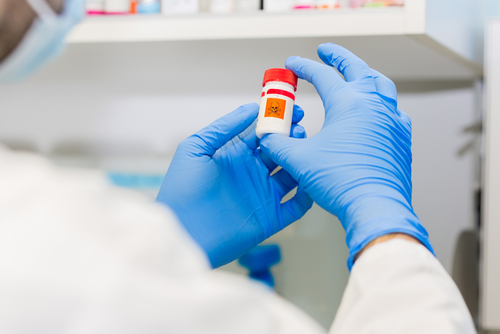OPERATIONS UPDATE: 1/27/26 BWS, Inc. is back to full operations. Please contact us with any questions or concerns about your scheduled pick up - (410) 437-6590 or customercare@bwaste.com
Safely Handling Hazardous Drugs
In the healthcare industry and related fields, if your personnel are handling NIOSH hazardous drugs, then they need to understand not only the risk but the proper methods to ensure compliance and safety. The United States Pharmacopoeial Convention puts out an annual report that outlines important quality and safety standards of medicines and foods, many of which are legally recognized in the US and abroad. The safety standards we will discuss in this article are titled, “<800> Hazardous Drugs –Handling in Healthcare Settings”. These safety standards and guidelines were set to publish on the 1st of December 2019, but chapters <795> and <797> have been put under review. Both of the aforementioned chapters affect <800> directly, and thus, at present, all three chapters are currently informational in nature rather than compendially applicable. That being said, early adoption of these standards is highly advisable for the safety of your team and the compliance of your facility. After all, USP's lower than 1000 can be enforced by regulatory bodies such as the FDA, EPA, OSHA, and the CDC. 
What does Chapter <800> Cover?
This chapter primarily covers the safe handling procedures of hazardous drugs to address growing concerns of potential health effects from occupational exposure to hazardous drugs in healthcare settings. A drug classified as “hazardous” possesses any one of the following characteristics according to USP:
- Impacts or damages DNA/genes
- Causes cancer
- Contributes to infertility
- Impacts a developing fetus or embryo
- Causes developmental abnormalities
- Causes organ damage
- Has a similar structure to another drug deemed to be hazardous
Mishandling these drugs could lead to both acute and long-term effects including hair loss, cardiac toxicity, kidney damage, cancer, infertility, and more. Anyone who handles these drugs could potentially be at risk including pharmacists, nurses, physicians, surgeons, and even janitorial staff. Hazardous waste removal companies like us can also be affected, which is why it's so important that everyone in the medical community is aware of these safety standards and readily adopts them. You can learn more from the USP-NF website.
What Should You Do Now?
For now, the most important thing is to ensure that your facility is safe, in compliance with current regulations, and begin to take action toward the safety standards and guidelines outlined in USP <800>. USP has many resources available to fields within the healthcare sector to begin that process. Though <800> is not yet compendially applicable, it will certainly become so in due time. Make sure that all members of your staff, no matter their role, understand responsibilities, procedures, reporting, and implications of handling hazardous drugs for their safety, patient and staff safety, and the good of our environment.
Work with BWS, Inc. for Hazardous Drug Removal
To ensure the safety of your workforce and patients and that your facility maintains a perfect compliance record for hazardous drugs or any other hazardous materials, call on BWS, Inc. We have a flawless compliance record as well as a deep understanding of the regulations and safety standards that govern our industry. To learn more about how we can help you, contact us today.
Ready to get started?
We offer a variety of competitively priced service options with no contracts or hidden fees. Request a free quote.
Our Dedication to Providing the Highest Quality Regulated Waste Services
is Shown in What Our Clients Say About Our Work
We provide an outstanding value and service to our regulated waste customers and pride ourselves over the last 50 years on our 100% customer satisfaction with 99% customer retention ratio.
Paul R Miller, D.D.S. and Team
ZytoGen Patient Services
Akbar Masood, D.D.S.
Chris Donaldson
Dharani Jasthi
Tomicka Jackson-George, D.M.D.
Louis Sachs, D.D.S.
Kate Blair English
Dave Ryan
Kerry Owens, Avalon Plastic Surgery
Jamie Fleming, National Spine & Pain Centers
Keith Roberts, Biomatrix Specialty Pharmacy
Mireia Pedragosa Marin, Synergy Research
Rebecca Crouse, Randolph Macon Academy
Melissa C, Patriot Chiropractic
Dr. Rosario Ignacio
Dr. Thomas Lutz, Odenton Family Dentistry
Dr. Louis Sachs, DDS
Eric B.
Brenda Shah
Stay connected - Be the first to know!
Get BWS news and promotions straight to your inbox
Don't worry. We won't sell your information!




